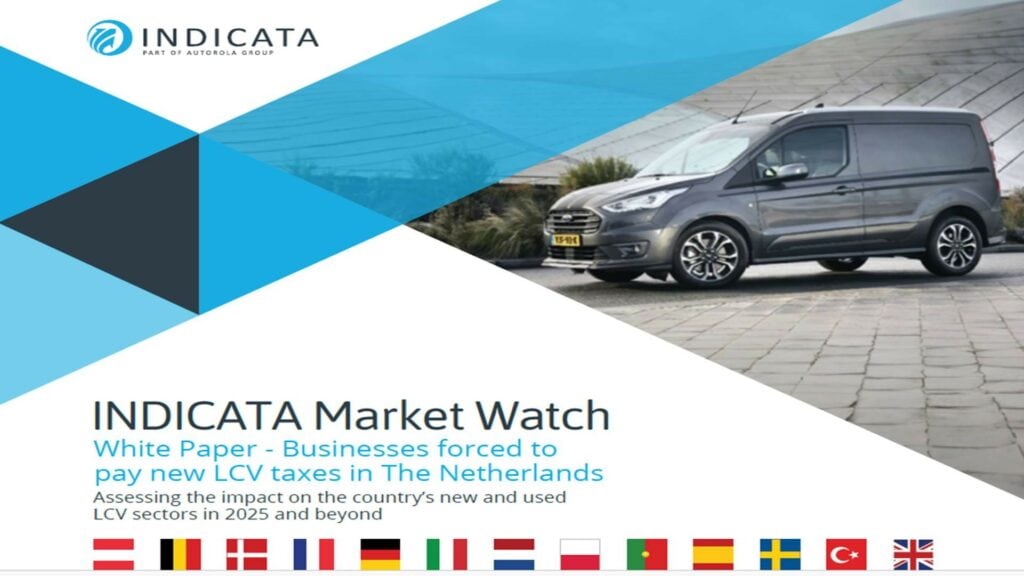Whitepapers
April 26, 2024
INDICATA Netherlands has published a new White Paper on the impact of abolishing the LCV entrepreneurs’ exemption set for introduction in January 2025

The Netherlands is due to abolish the “entrepreneur’s exemption” on the BPM tax applied to Light Commercial Vehicles, from January 2025, with the sole exception of electric LCVs.
This is a move which will see all new petrol and diesel vans subject to the same taxation as passenger vehicles and will increase the sale price of new LCVs by an average of 12,300 EUR across the country’s best-selling models.
INDICATA has published a white paper looking at the potential effects of this change on the used van market in the Netherlands. These predictions are based on its data from Austria in 2021, which underwent a similarly large taxation shift, when it introduced the NOVA luxury tax on new LCVs in 2021.
What happened to the used LCV market in Austria?
The Austrian NOVA tax was introduced in 2021, on a lower rate which has increased annually since then, and which reaches its peak and perpetual rate in 2025. This introduction coincided with the international microprocessor shortage, which saw used vehicle values rise across the board, so it was important for INDICATA to take this into account to determine the true impact of NOVA on used values.
When the effects of the shortage were subtracted from the market data, it was revealed that for each increase in NOVA rates, the used LCV market saw a price increase of 2.5%, or a predicted 12.5% overall increase over five years.
What might happen to LCV values in The Netherlands?
The immediate increase in new LCV prices is likely to have a negative impact on sales, as businesses are likely to try and run their existing vehicles for as long as possible to avoid the tax. This in turn should result in an increase in used LCV prices across The Netherlands.
As such, the prediction for used LCV prices after the tax introduction is that market values will rise between 8 and 12.5% overall in 2025.
What is the future for LCVs in The Netherlands?
With the introduction of the new taxation on internal combustion LCVs in The Netherlands, combined with the increasing number of zero emissions zones across the country, which bans combustion engines within 20 municipalities in 2025, there is likely to be a surge in the take-up of electric LCVs instead.
A major ‘problem factor’ might be the weight of eLCVs, which, if plated at 4.25 tonnes GVW, will mean many current drivers of LCVs will be unable to drive eLCVs due to the weight restrictions on licences.
While businesses will be able to invest in the training and testing of drivers to enable them to drive these heavier vehicles, a preferable alternative would be to match the legislation found in the UK, which gives dispensation to drivers of electric vehicles to operate heavier vehicles. This aims to encourage the take up of eLCVs, alongside other taxation and legislative incentives.